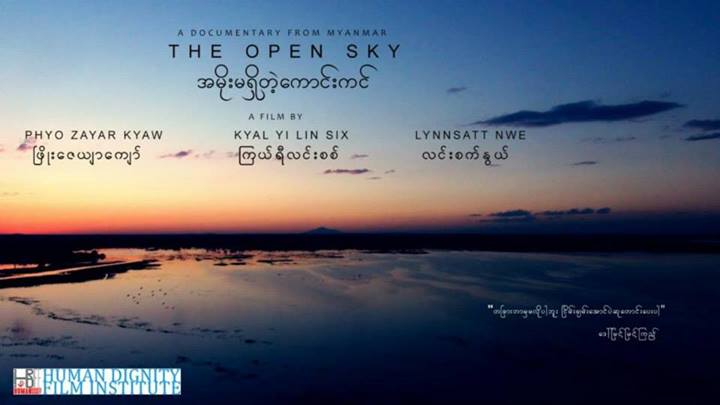The second ‘Human Rights Human Dignity’ Film Festival held in Yangon, Myanmar, on June 15-19 featured a total of 67 films, including 32 local films, dedicated to democracy icon Aung San Suu Kyi and the late U Win Tin, Myanmar's longest-held political prisoner.
A noble cause, but one that was overshadowed this year by the last-minute cancellation of the screening of ‘The Open Sky’, a 20-minute documentary film about a friendship between a Buddhist woman and a Muslim woman amidst the communal violence that gripped the town of Meikhtila last year. Those riots spread to other towns in central Myanmar and left more than 40 people dead.
The organizers decided to remove the documentary after they received death threats via social media from angry netizens who depicted the film as part of a Muslim conspiracy to dominate Buddhist-majority Myanmar.
There has been a surge of religious extremism in recent years in many parts of Myanmar, which has led to clashes, riots, and other forms of communal violence. In particular, the Muslim minority is accused and persecuted by many Buddhist extremist groups for aiming to ‘dominate’ Myanmar. The hate speech directed against Muslims is also dirtying the web, with active sharing or discussion of intolerant views against religious and ethnic minorities.
Min Htin Ko Ko Kyi, one of the organizers of the festival, explained why they withdrew the film:
This film festival was not intended to create any conflict. I cannot let the conflict and hatred happen among the people. As this is not what [we] intended, [we] decided to cancel the screening.
But he defended the film and praised its theme in a BBC Burmese interview:
The film depicts the loving relationship with mutual help, protection and kindness between two neighboring women of different faiths.
According to one of the organizers, they received threats that people will burn the theater, kill the director and start another riot if they continued with the screening of the film. On June 15, an article criticizing the film and filled with hate remarks went viral. The article alleged that the film is biased in favor of Muslims:
We heard that this film was funded by [Organization of the Islamic Conference]. There is no need to watch the film since it is obvious that the film will be in favour of the Muslims as it was funded by the Muslims. […]
The article also accused human rights activists of opportunism for promoting the ‘biased’ film:
[…] Just want to ask directly whether the moral of the film is on the side of human rights or the rights of the Kalars [sic]. Now if [we] point out the fact that there is no neutral stance, will there be a real human rights activist who will point out the truth? It is sure that [they] will be quiet. If I have to speak my opinion openly, human rights activists are opportunists. […]
Min Htin Ko Ko Kyi's interview with the BBC Burmese gave a hint as to why the organizers bowed to pressure from anti-Muslim forces:
I have nothing to comment about the hate speech because our country is in a very sensitive situation. There are also people who want to create conflicts. And we are not making this film festival to create conflicts. If I am to choose for the good reputation of our film festival, the film we produced or our country, I would choose that of our country which is in a very sensitive situation. I will not criticize other people or organization.
For David Scott Mathieson of Human Rights Watch, the withdrawal of the film spoiled the success of the record-breaking festival, which bravely chose human rights as its theme:
By its very existence, the festival demonstrates a commitment to stand up to the forces of division and hatred. But the reaction of some Burmese also shows that the struggle for respect for rights in Burma has a long way to go.
United States Ambassador Derek J. Mitchell, who attended the event, spoke about defending free speech and alluded to the online threats made against the organizers:
There will always be those less courageous people who feel threatened by speech they do not like, or a story that does not conform with their own prejudices.
This narrow, fearful mindset runs contrary to everything this festival is about. Everyone who values the meaning of this event must oppose the use of threat and intimidation to suppress speech and censor artists.
The incident is the latest manifestation of the growing and alarming religious intolerance in Myanmar. If a film about friendship can easily provoke hostile reactions, what about other political initiatives like integration, secularism, and non-discrimination?








1 comment